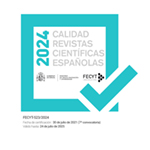La acción ritual indígena ante el sistema mundial: ritos marubo de curación, solidaridad y resistencia
Resumen
Este ensayo examina el papel de los rituales y discursos ceremoniales marubo en los enfrentamientos con el sistema global en sus aspectos político-económicos. Durante y después de la fiebre del caucho (aprox. 1890-1920), los antepasados de los marubo migraron desde sus ubicaciones previas hasta un nuevo lugar en las cabeceras de los riachuelos de la cuenca del Yavarí, aislándose de la participación en las actividades económicas del comercio del caucho. Ahí, construyeron una alianza entre miembros de diferentes etnias pano. La alianza fue mediada por el desarrollo de un nuevo sistema ceremonial centrado en los ritos de curación y las fiestas, ambas categorías justificadas por una filosofía de antiviolencia, intercambio y cuidado mutuo, explícitamente pensada para sobrevivir a la fiebre del caucho. Con el tiempo, la alianza se convirtió en fusión étnica, dando lugar a una nueva identidad étnica. A finales del siglo XX, los marubo se enfrentaron a una reintegración al sistema global, a través de la incorporación a la organización burocrática del estado brasileño. Otra vez crearon una alianza interétnica, la organización indígena CIVAJA. Esta alianza fue mediada por las reuniones del movimiento indígena y sus discursos sobre autonomía y poder indígena. El ensayo concluye mostrando un ejemplo concreto del uso del sistema ceremonial marubo para invertir las relaciones de poder entre indígenas y burocracia.Descargas
Descarga artículo
Licencia
La Revista Española de Antropología Americana, para fomentar el intercambio global del conocimiento, facilita el acceso sin restricciones a sus contenidos desde el momento de su publicación en la presente edición electrónica, y por eso es una revista de acceso abierto. Los originales publicados en esta revista son propiedad de la Universidad Complutense de Madrid y es obligatorio citar su procedencia en cualquier reproducción total o parcial. Todos los contenidos se distribuyen bajo una licencia de uso y distribución Creative Commons Reconocimiento 4.0 (CC BY 4.0). Esta circunstancia ha de hacerse constar expresamente de esta forma cuando sea necesario. Puede consultar la versión informativa y el texto legal de la licencia.









